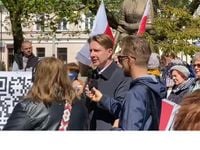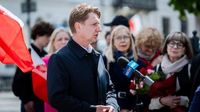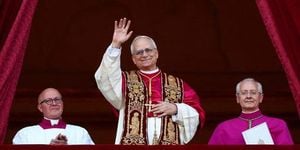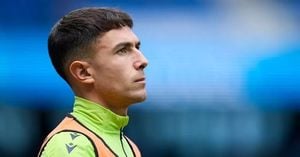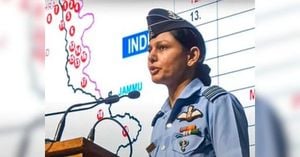In a lively presidential debate held on May 8, 2025, Artur Bartoszewicz, a candidate for the presidency of Poland, voiced his frustrations about being sidelined by the media and facing obstacles in connecting with voters. During the debate organized by Telewizja Republika, Telewizja wPolsce24, and Telewizja Trwam, Bartoszewicz lamented, "Democracy? Freedom of speech? What are we even talking about? Two months into the presidential campaign, and I am seen by many for the first time. Today, I had another press conference where no media showed up." His comments highlighted a broader concern regarding the accessibility of candidates in the political landscape.
Bartoszewicz's campaign has been marked by challenges, including a canceled meeting with voters in Kalety on May 8, where the local mayor intervened to prevent the event from taking place. "The mayor demanded that the entrepreneur renting the space ensure that the meeting did not happen. I have faced several such incidents," he said. This sentiment reflects a growing frustration among some candidates who feel that the political system is stacked against them.
As a candidate, Bartoszewicz is advocating for significant changes in Poland’s political structure. He proposes a shift towards direct democracy, which would empower citizens to make decisions rather than political parties. This idea is central to his election program known as "777," which also addresses demographic challenges and economic reforms. Bartoszewicz suggests that political parties should not be funded by the state budget, arguing that they use taxpayer money to campaign against him and others like him.
On May 1, 2025, he met with residents of Suwałki near the M. Konopnicka monument, where he presented his vision for Poland. Bartoszewicz, who is 51 years old and an economist by profession, emphasized the need for citizens to have the right to make binding decisions through referendums. He stated, "Poles should have the right to make decisions, which means that direct, threshold-free, binding referendums should be a permanent solution for the Republic. This is similar to what exists in Swiss democracy, but also includes the concept of a citizen's veto."
In addition to advocating for direct democracy, Bartoszewicz has proposed abolishing the retirement age altogether. He argues that with an aging population, the current approach of raising the retirement age is flawed. "I disagree with this. I believe the retirement age should be completely eliminated, and the pension system should be funded not only by employee contributions but also by dividends from State Treasury companies, the Central Bank, and, most importantly, the results of natural resource extraction," he explained.
Healthcare reform is another pillar of Bartoszewicz's campaign. He asserts that the Polish healthcare system needs a complete overhaul. "When we separate the private sector from the public sector in healthcare, we will ensure that young doctors can specialize in essential fields necessary for the safety of Poles. Therefore, the National Health Fund should make specialization orders among medical students, and the Ministry of Health must be liquidated," he stated passionately.
The debate format introduced a new approach where questions were posed not by moderators but by experts, including InPost president Rafał Brzoska and constitutional law expert Professor Ryszard Piotrowski. However, notable candidates such as Rafał Trzaskowski, Magdalena Biejat, and Maciej Maciak did not participate in this debate, raising questions about the inclusivity of the political dialogue.
As the campaign progresses, Bartoszewicz's proposals have sparked discussions among voters about the future direction of Polish politics. His focus on direct democracy and significant reforms in both the pension and healthcare systems resonates with a segment of the electorate seeking change. The upcoming elections, set for May 18, 2025, will be crucial in determining whether Bartoszewicz's vision can gain traction among the Polish populace.
In a political landscape where media coverage and public visibility are critical, Bartoszewicz's experiences underline the challenges faced by alternative candidates in Poland. As he continues to navigate these hurdles, his determination to bring his ideas to the forefront remains evident. The outcome of the presidential elections could very well hinge on whether voters are willing to embrace a new approach to governance and democracy.
As the first round of elections approaches, many are watching closely to see how Bartoszewicz's message will resonate with the electorate. Will his call for direct democracy and reform attract enough support to challenge the established political order? Only time will tell, but one thing is clear: Bartoszewicz is committed to making his voice heard in a system that he believes often silences those who dare to challenge the status quo.
